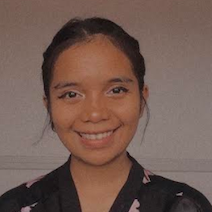


We students, in the face of this outbreak and lockdown, are left with no other alternative but to shift to online classes, where we have to deal with academic loads that are excessive, meet deadlines that are unreasonable, and take exams that are neither fair nor proper. Some students are even forced to be present for online classes regardless of the difficulties in their personal and family lives – because attendance is a must.
The outbreak is already an extreme burden on students, and institutions urging a “new normal” for education impairs our learning and leaves us lonely, anxious, and uncertain.
We are addressing our grievances to the Commission on Higher Education (CHED) as well as the public, and are endorsing the petitions made by student councils in opposition to the implementation of online classes. We are convinced that the protocols for online classes and task delegations are unsuitable and too heavy in these trying times. (READ: Students urge suspension of online classes during coronavirus lockdown)
Ateneo de Manila University made a bold move by mass promoting its students and refunding their tuition, which was consistent with the mission and vision of Jesuit education: education that is considerate, humane, and compassionate. The students were their bedrock in making the decision, and it’s not surprising how this amplified the protests of other schools' students.
At the center of these students’ pleas is the call for inclusivity. Dismissing students as “crybabies” and assuming all students have access to the internet and the necessary hardware and software is plain indifference. Students have to deal with unstable connections, being forced to go outside to buy data from kiosks, spending all their money to buy said data, and finding other sources and materials. (READ: [OPINION] The Luzon lockdown from a Filipino student's perspective)
Students are also finding it difficult to freely express their views, because some have already been threatened or prevented from doing so by authorities. Some institutions are even asking their students to settle their matriculation accounts, disregarding families' fiscal worries in light of the crisis.
Students should not be begging for an education that is indiscriminate and lenient given their situation. We insist that educators and school administrators no longer express apathetic statements towards students' concerns, and call on them to provide the appropriate support instead. (READ: Netizens debate mass promotion of students amid coronavirus pandemic)
We are also campaigning to better inform the public on the plight of students. On April 18, we launched a grievance testimonial that gathered students' sentiments and urgent needs, as well as proof or "receipts" of their testimonies.
The following are some of the findings and recommendations we have deduced from this initiative:
- Mass promote students now. No students should be left behind.
- Listen and negotiate with students.
- Students have the right to freedom of expression and freedom of thought, especially if decisions involve their physical and mental health.
- Show empathy, sympathy, and compassion towards students.
- Modify necessary bridging programs.
Our final call, together with student councils and other student organizations, is for our petitions to be addressed seriously. We defend our right and duty to elevate the concerns of our fellow students and preserve the value of learning given our current situation. – Rappler.com
Jam Labong is a first year BA Philosophy major at the University of the Philippines-Diliman. She is also a writer/editor for the Social Communications Ministry of her parish in Cubao.
Mark Roland Santos is a second year BA Political Science student at Far Eastern University. He is a student-activist fighting for truth, justice, and the common good.